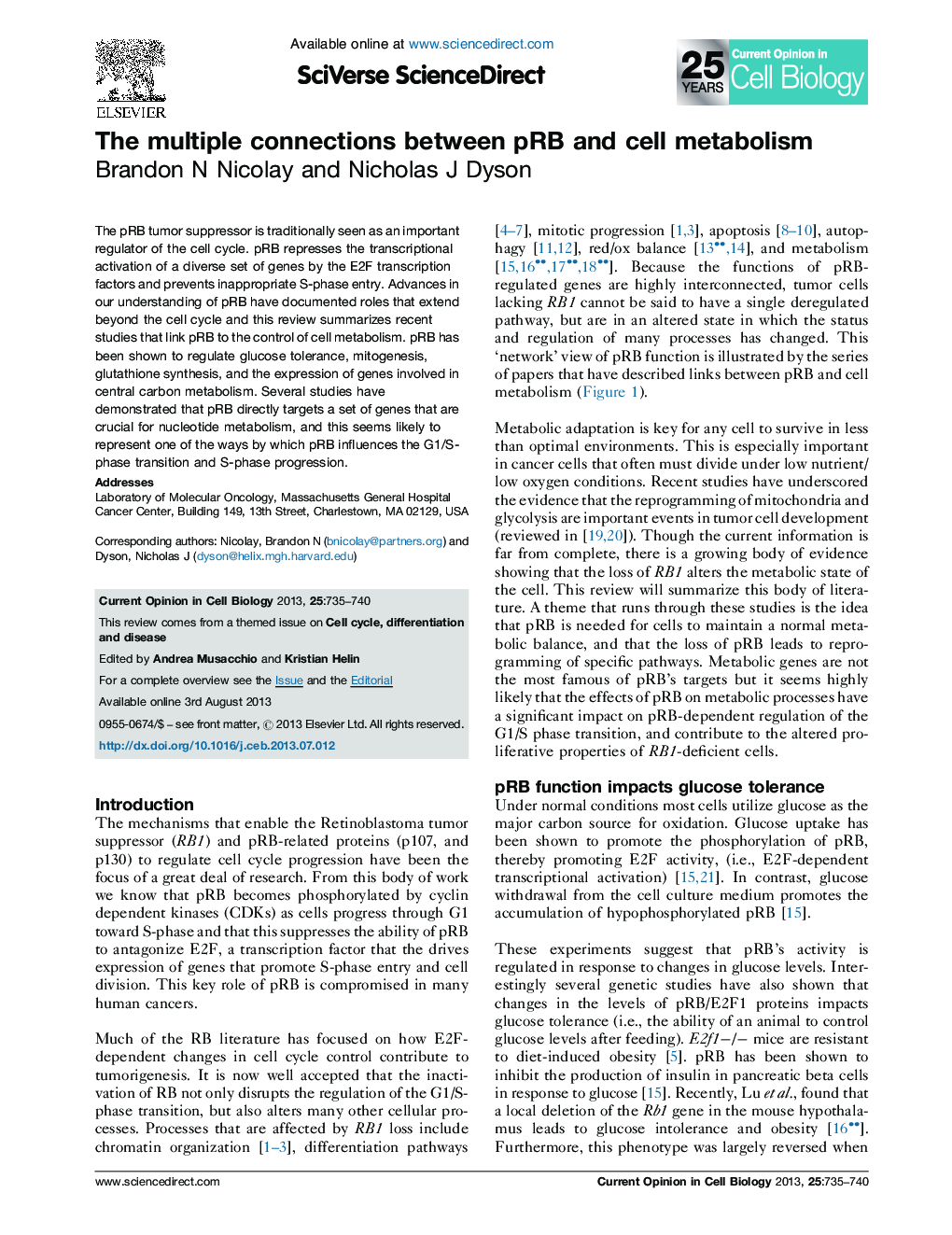| Article ID | Journal | Published Year | Pages | File Type |
|---|---|---|---|---|
| 2169870 | Current Opinion in Cell Biology | 2013 | 6 Pages |
•pRB directly regulates glucose tolerance.•pRB inactivation directly reduces mitogenesis and alters oxidative metabolism.•Loss of pRB alters glutamine catabolism in fly and mammalian cells.•Direct pRB regulation of nucleotide metabolism genes appears important for cell cycle inhibition.
The pRB tumor suppressor is traditionally seen as an important regulator of the cell cycle. pRB represses the transcriptional activation of a diverse set of genes by the E2F transcription factors and prevents inappropriate S-phase entry. Advances in our understanding of pRB have documented roles that extend beyond the cell cycle and this review summarizes recent studies that link pRB to the control of cell metabolism. pRB has been shown to regulate glucose tolerance, mitogenesis, glutathione synthesis, and the expression of genes involved in central carbon metabolism. Several studies have demonstrated that pRB directly targets a set of genes that are crucial for nucleotide metabolism, and this seems likely to represent one of the ways by which pRB influences the G1/S-phase transition and S-phase progression.
